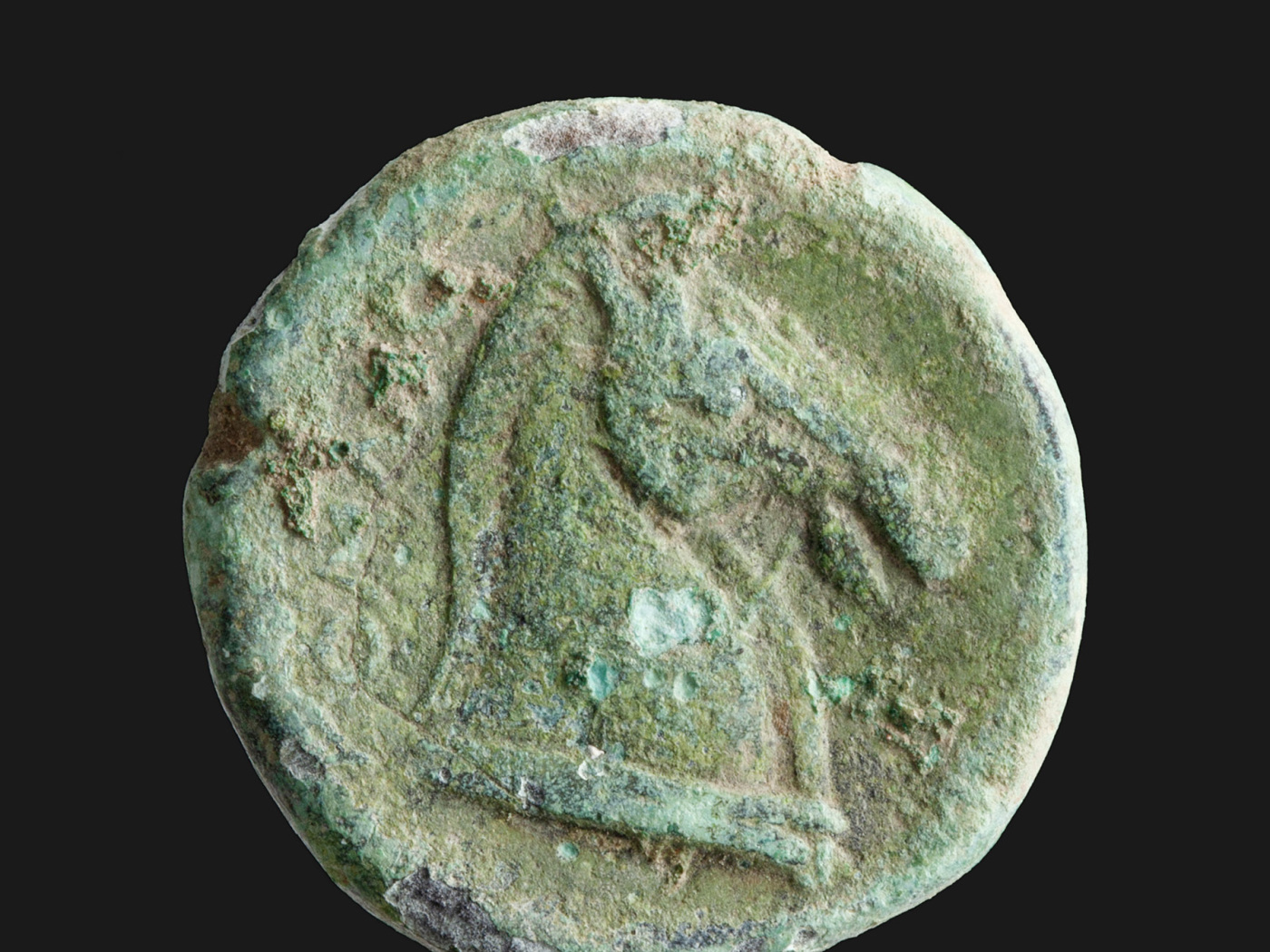
Swiss dig unearths 2300-year-old Roman coin

A bronze coin from the 3rd century BC has been discovered during excavations in the Roman town of Augusta Raurica - the first find of its kind in Switzerland.
+Get the most important news from Switzerland in your inbox
The small coin with the head of Minerva on one side and a horse’s head on the other was minted in the heart of the Roman Empire in Italy. Such coin finds are not uncommon in what is now Italy, but they are rare in Switzerland, it is said.
Although it was already 300 years old when it was found in the ground in Augst, the coin shows “astonishingly” few signs of wear, the report continues. The archaeologists interpret this as a sign that it was already considered particularly valuable at the time and was stored with appropriate care.
According to the press release, the archaeologists also discovered other unusual objects during the current emergency excavations, including stone fragments with carved initials. These stones were used in the front rows of the former amphitheater for reserved seating for wealthy citizens.
The emergency excavations for a new construction project in Augst have been ongoing since April 2023. At that time, several important finds had already been made – including a terracotta Venus figurine and a small bronze cockerel statuette. The excavations will continue next year in the communicated expectation that one or two surprises will come to light.
Translated from German by DeepL/mga
This news story has been written and carefully fact-checked by an external editorial team. At SWI swissinfo.ch we select the most relevant news for an international audience and use automatic translation tools such as DeepL to translate it into English. Providing you with automatically translated news gives us the time to write more in-depth articles.
If you want to know more about how we work, have a look here, if you want to learn more about how we use technology, click here, and if you have feedback on this news story please write to english@swissinfo.ch.

In compliance with the JTI standards
More: SWI swissinfo.ch certified by the Journalism Trust Initiative




























You can find an overview of ongoing debates with our journalists here . Please join us!
If you want to start a conversation about a topic raised in this article or want to report factual errors, email us at english@swissinfo.ch.